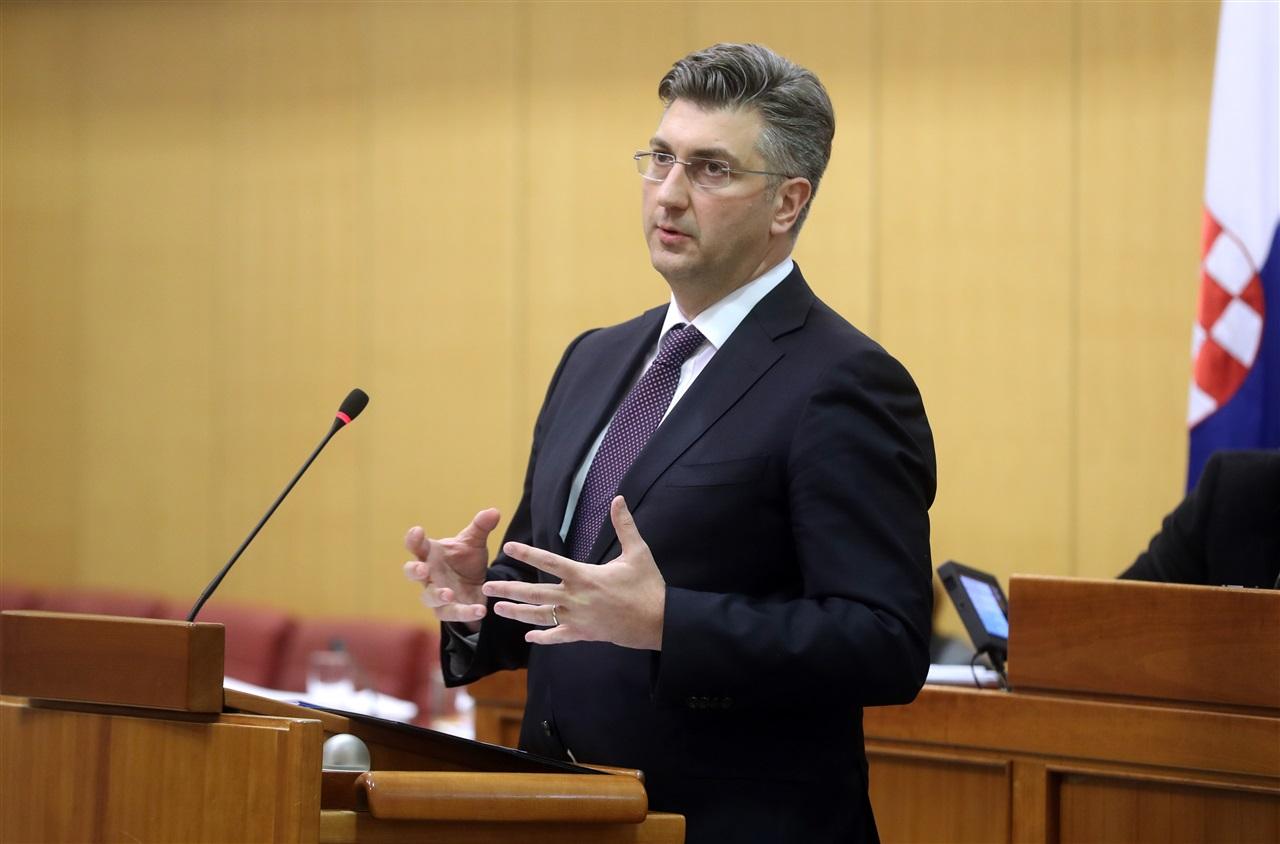
Zagreb - Prime Minister Andrej Plenković on Wednesday informed the Croatian Parliament about European Council meetings, saying that it was particularly important to Croatia that last week's summit in Brussels had discussed the European Union membership prospects of Southeast Europe and that a message of encouragement had been sent to those countries.
The Prime Minister submitted a report about a European Council meeting held in Brussels on March 9 and about informal Council meetings held in Valletta on February 3 and in Brussels on March 10. Speaking of last week's meeting in Brussels, Plenković noted that there had been no discussions or conclusions by the European Council about Southeast European countries since 2008.
What is most important is that at that meeting the EU heads of state or government reiterated clear membership prospects for Croatia's eastern neighbours and the EU's commitment to help these countries meet the European criteria and implement reforms, he said, adding that a message of encouragement was sent to those countries.
"The arguments that I presented at that meeting, which, I am strongly convinced, reflect the consensus in Croatia, are that we have to continue the process of enlargement to include our neighbours, in particular Bosnia and Herzegovina, but others as well, that we have to ensure that the European process upholds not only the reform efforts but also the cohesion of some of the countries close to us in terms of their functioning.
"I made it very clear that the more the EU hesitates with its institutional, financial, diplomatic, political or any other presence, the stronger the influence of other global players in our immediate neighbourhood," the PM said.
He said that Croatia should be more active in efforts to put those countries back on the European Council agenda more often than has been the case so far. "Nine years is a very, very long time for conclusions on the only area missing on the map of Europe when it comes to rounding off the European integration project," he said.
Speaking of other topics discussed at the meeting, Plenković singled out conclusions on job creation, growth and competitiveness. He said that European Central Bank President Mario Draghi had also attended the meeting and presented favourable macroeconomic indicators for the EU, saying that the average unemployment rate was now 9.6%, the lowest since 2009.
Plenkovic said that economic indicators for Croatia were encouraging, citing a public debt reduction to 83.9% of GDP and a budget deficit reduction. "The trends that Croatia is experiencing now are such that we must all make common efforts to ensure that these trends continue and to increase employment with a combination of national measures and European funding."
Plenkovic said that security and defence had also been discussed, recalling that last June the EU had adopted a global foreign and security policy strategy. He said that Croatia had recognised the need to increase its defence budget in new global circumstances and that its goal "in the slightly longer term" was to increase defence spending to 2% of GDP.
"However, if we continue working on increasing our capabilities, our efficiency and the compatibility of our defence capabilities, then the funds we now have, which are considerably less than 2%, can be useful in our contribution to strengthening the overall security and defence capabilities of the EU," Plenkovic said.
Speaking of the informal meeting in Malta, which focused on migrations, Plenković said that emphasis was again put on the importance of the agreement with Turkey, which has a main role in stopping a possible further influx of refugees and migrants into Europe. He said that events in the Netherlands and Germany, which had banned Turkish ministers from attending rallies of Turks living there in support of a referendum to expand the powers of President Recep Tayyip Erdogan, "are not contributing to the stability of that dialogue or trust, and are carrying certain risks."
The meeting in Malta also discussed trans-Atlantic relations, the new US administration and relations with other global players such as Russia, and preparations for a summit in Rome on March 25 where a document will be signed to mark the 60th anniversary of the Treaties of Rome.
The Rome summit will be an opportunity in these special circumstances caused by Britain's decision to leave the Union for the 27 EU member states to find a new foundation for cooperation, believing in the achievements of the past 60 years and deeply aware of the challenges facing them, to decide what kind of a European project they want, Plenković said.
Plenkovic said that three points were essential for Croatia: greater democratic legitimacy of the EU institutions, which includes a continuous fight against populism and demagoguery, greater benefits from common policies and the EU budget, and a stronger global role of the EU. He said that the future of the European project rested on these three pillars.

.png)
